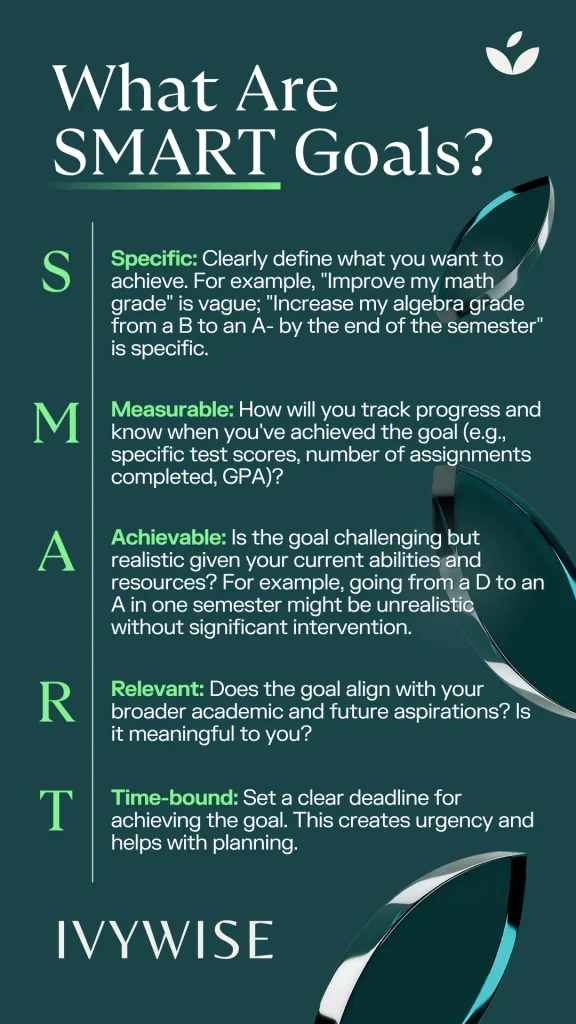High school is just around the corner, and it’s an exciting new chapter of academic, social, and personal changes. Getting ready while you’re still in middle school can help you hit the ground running and make the most of the transition, which is even more important when you consider that you start building your profile for college admissions from day one of ninth grade. Keep reading for high school transition tips and strategies.
Embarking on Your High School Journey
Transitioning to high school smoothly can help you thrive during this period of significant growth and change. As a bridge between childhood and adulthood, high school is where you will develop skills, knowledge, and character traits that will shape your entire life — academically, personally, and professionally. Knowing in advance what to expect can help you feel more confident and less overwhelmed.
Focusing on Key Areas
To have a successful high school experience, you should focus on these key areas:
- Academic performance: Developing good study habits, choosing and managing a balanced course load, seeking help when needed, and managing your time both inside and outside of school.
- Personal development: Prioritizing self-care, embracing a growth mindset, learning to accept responsibility, and exploring your passions.
- Social and emotional well-being: Building strong relationships, developing effective communication skills, handling peer pressure, and cultivating a support network.
- Future planning: Setting effective goals, exploring different career paths, researching colleges and academic programs, and preparing for standardized tests.
Getting a Head Start
Eighth graders can get a head start on the transition process by getting into the right mindset, familiarizing themselves with the school and daily routine, and working on crucial skills they will need in high school. Here are some tips to get you started — and if you’re already doing some of these, you’re well on your way to success!
- Start tracking your assignments, deadlines, and extracurriculars, learning how to prioritize tasks based on deadlines and importance.
- Visit the school prior to your first day, if possible, and learn the route to school and the daily schedule.
- Be proactive in asking questions and seeking help from teachers and counselors, and practice maintaining open communication with your parents and school staff.
- Break down large assignments into smaller, manageable steps.
- Don’t overcommit. Choose a few activities you care about and pursue them wholeheartedly. And learn to say “no” to commitments if you’re feeling overwhelmed.
- Take care of your mental and physical health by getting enough sleep, eating healthy foods, engaging in regular physical activities, learning how to handle stress, and identifying mental health resources available at your school or in the community.
- Seek mentors, such as teachers, coaches, or older students, who can provide guidance and support.
- Be open to making new friends and trying new things.
Understanding the High School Curriculum and Course Selection
High school curriculums can vary widely due to factors like state and local requirements, whether the school is public or private, the availability of advanced courses (such as honors, AP, or IB), the resources of the school or district, and the level of autonomy teachers have in delivering the material. While colleges look at course rigor, they also consider your academic record in the context of your high school, looking at the factors mentioned above. Careful high school curriculum planning is crucial for building your academic profile and maximizing your success.
Choosing Your Classes
Ultimately, your objective for selecting high school courses is to align them with your interests and goals while also fulfilling the requirements you need to graduate. But wait, there’s more! Not only does course rigor impact college readiness, but you also must ensure you are fulfilling at least the minimum requirements in core subjects like English, math, science, social studies, and foreign language. And these requirements can vary by college.
If you excel in a particular subject, consider taking advanced classes in that area. If it’s a topic you’re particularly passionate about, it may end up inspiring your choice of college major and career. While challenging yourself is good, be mindful of your high school course selection. A balance of challenging courses and those where you feel confident is key to maintaining good grades and mental well-being.
High school is also a great time to try new subjects through electives. This can help you discover new passions or rule out areas you don’t enjoy.
Building Good Study Habits and Effective Study Techniques
Developing effective study habits and techniques early on can make a significant difference in your performance, confidence, and overall well-being. However, you will likely need to adjust your strategies over time due to various factors.
Practicing Good Study Habits
The best study habits for high school success combine strategies that, when consistently applied, lead to deeper understanding, better retention, and improved grades. Here are our study tips for high school:
- Set aside specific times each day for studying and homework, even if it’s just 30 minutes. Consistency builds a habit. Use a planner or digital calendar to track assignments, deadlines, and study blocks. Prioritize tasks based on urgency and importance.
- Minimize distractions by finding a quiet, well-lit space free from interruptions. Keep your study area tidy and have all the necessary materials readily available.
- In class, focus on key concepts, main ideas, and examples. Develop a note-taking system that works for you. Review your notes shortly after class to solidify understanding and fill in gaps.
- Do practice problems and exercises — simply reading about concepts isn’t enough. Try to relate what you’re learning to real-world situations or previous knowledge.
- Instead of cramming, review material regularly over time. This helps move information from short-term to long-term memory. Use flashcards or self-made quizzes to test your recall.
- If you’re struggling with a concept, ask your teacher, a classmate, or a tutor for clarification. Take advantage of extra help sessions, tutoring centers, or online resources provided by the school.
- Take short breaks to avoid burnout and maintain focus.
Developing Strong Study Techniques and Strategies
Developing effective study techniques is an active process that involves experimentation, reflection, and practice. First, try different methods, like flashcards, mind maps, self-quizzing, and teaching the material to others, to see what works best for different subjects and for you personally. Let’s look at these study techniques more in depth:
- Flashcards: Excellent for memorizing facts, vocabulary, or formulas. Use tools like Quizlet.
- Self-quizzing: After reading a section, close your book and try to recall key information.
- Mind maps/concept maps: Visually connect ideas and information, which aids understanding and recall.
- Teach the material: Explaining a concept to someone else forces you to organize your thoughts and identify gaps in your understanding.
Next, identify your learning style. Are you more visual (diagrams, videos), auditory (listening, discussions), or kinesthetic (hands-on activities, movement)? Tailor your techniques accordingly. After a test or assignment, think about which study methods were most effective and what could be improved.
Adapting Study Strategies over Time
The academic landscape and your personal learning needs evolve throughout high school and beyond. Adapting study strategies is crucial for several reasons:
- As you progress from ninth to 12th grade, subjects become more complex and require deeper analytical and critical thinking skills. What worked for basic memorization in earlier grades might not be sufficient for understanding advanced concepts or writing complex essays.
- Your study methods will differ depending on the subject. For example, math and science often require practice problems, understanding formulas, and applying concepts. English and history demand critical reading, analytical writing, research, and synthesizing information. Foreign languages require consistent memorization, speaking practice, and cultural understanding.
- As you mature, you might discover new strengths or preferences in learning. What felt awkward initially might later become a preferred method. Your attention span might increase, or you might find new ways to connect with material.
- College courses are often more demanding, self-directed, and fast-paced than high school. Adapting study strategies in high school helps you prepare for the independent learning required at the university level. You’ll need to be flexible and resourceful.
- Sticking to a single, ineffective study method can lead to frustration and burnout. Adapting helps keep learning fresh, interesting, and more effective, preventing you from feeling stuck or overwhelmed.
Setting Academic Goals and Understanding Grading Systems
Setting academic goals is more than just wishing for good grades; it’s a strategic process that empowers you to take ownership of your learning. Before you can set effective goals, you must first understand your current standing. Honestly evaluate your current grades, strengths, weaknesses, and preferred learning styles. What subjects do you excel in? Where do you struggle? Look at past test results, assignment feedback, and teacher comments to identify patterns in your performance.
Then, define what success means for you. For example, it may not mean getting only A’s on your report card — it could mean improving in a challenging subject, mastering a new skill, participating more in class, or completing all assignments on time.
Using the SMART Goal Framework

It can also be helpful to break your goals down into short- and long-term objectives. Long-term goals are your major aspirations (e.g., “Achieve a 3.8 GPA by junior year,” “Take AP Calculus in 12th grade,” “Get into a specific college”). Short-term goals are the actionable steps — which are smaller and more manageable — needed to reach your long-term goals.
Once you’ve completed your academic goal setting, it’s time to develop an action plan for achieving them. You’ll also want to periodically check your progress and make any necessary adjustments. And don’t forget to celebrate your wins, no matter how small.
Understanding High School Grading Systems
It’s important to understand how the high school grading system works so you can maximize your learning and academic performance. For example, does your high school use a weighted or unweighted GPA system? In other words, are honors, AP, IB, or dual enrollment classes given more weight — say, an A in such a class is worth 5.0 points instead of the standard (unweighted) 4.0? If so, this could have a significant impact on your academic standing and college admissions chances.
Other factors that affect the grading system include:
- Cumulative GPA: High school grades are typically cumulative, meaning every grade from ninth through 12th grade contributes to the overall GPA. This emphasizes the importance of consistent effort from the start.
- Weight of assignments: Different assignments (tests, quizzes, homework, projects, participation) often have different weight percentages towards the final grade. Knowing this allows you to prioritize your efforts. For example, if tests count for 50% of the grade, focusing heavily on test preparation is crucial.
- Impact of missed work: Understanding how zeros or low grades on individual assignments affect the overall grade can motivate you to complete all work and seek opportunities to improve.
- Prerequisites: Grades in certain courses are often prerequisites for higher-level courses (e.g., an A or B in Algebra I might be required for Algebra II).
Maximizing College Readiness
When you actively set specific goals and understand how your performance is evaluated, you gain the strategic advantage needed to navigate high school successfully and become a competitive college applicant. GPA is often the first quantitative measure colleges use to assess academic readiness. A high GPA, especially if it’s weighted, signals strong academic performance. However, the rigor of your curriculum also matters — achieving good grades in advanced courses shows that you are capable of handling college-level work.
Demonstrating college readiness also requires having solid foundational knowledge in core subjects, a strong work ethic, and mastery of essential academic skills. Aside from just gaining admission to college, your academic performance in high school can impact scholarship opportunities and your eligibility for specific majors and programs.
Time Management and Balancing Academics with Personal Life
From freshman year through 12th grade, you’ll find yourself encountering greater academic challenges, exploring a wider range of extracurricular activities, navigating high school social life, and discovering your evolving personal interests. Effective time management for students prevents stress, burnout, and a decline in performance.
Knowing how to manage your time helps you meet assignment deadlines, improves your grades, increases productivity, and reduces the likelihood of procrastination. A structured schedule also provides you with a sense of control over your responsibilities.
Finding Balance
Balancing school and social life is challenging but essential for a well-rounded and fulfilling high school experience.
Experiment with these time management strategies to find what works for you.
- Try the Pomodoro technique for studying: Work for focused 25-minute intervals, followed by a 5-minute break. After four “pomodoros,” take a longer break of about 30 minutes.
- Utilize calendars and planners: Use a physical planner, a digital calendar (Google Calendar, Outlook Calendar), or a task management app (e.g., myHomework, MyStudyLife) to organize assignments, study times, extracurriculars, and other activities. Seeing your entire week or month laid out can help identify potential conflicts and ensure you’re not overcommitted.
- Prioritize tasks and commitments: Learn to distinguish between tasks that are urgent (due soon, high stakes) and important (contribute to long-term goals but may not have immediate deadlines). Tackle urgent and important tasks first.
- Find your peak productivity: Identify when you are most focused and productive (morning, afternoon, evening) and schedule your most challenging academic tasks for those times.
- Fight procrastination: Start assignments early and break them into chunks to prevent last-minute cramming.
The Role of Extracurricular Activities in College Readiness
Extracurricular activities help students develop values and skills that will serve them well in college and beyond. The importance of extracurricular activities in college admissions is substantial. Beyond your academic record, extracurriculars provide colleges with a holistic view of your personality, passions, and potential contributions to their campus community. Admissions officers are looking for students who are not just academically capable but also engaged, curious, and capable of balancing multiple responsibilities.
Meaningful involvement demonstrates crucial soft skills such as leadership, teamwork, time management, communication, and problem-solving, all of which are highly valued in higher education. Consistent participation over several years showcases commitment and dedication, while taking on leadership roles highlights initiative and the ability to motivate others. Extracurriculars also provide excellent material for college essays and can strengthen letters of recommendation by giving teachers and mentors specific examples of your character and contributions outside of academics. Ultimately, your activities tell a story about who you are, what you care about, and how you’ll enrich the college environment, helping your application stand out in a competitive pool.
When choosing extracurricular activities, prioritize those that genuinely align with your interests and goals. Quality over quantity is key — it’s far more impactful to be deeply committed and make a significant contribution to a few activities than to superficially participate in many. Explore opportunities to get involved at school and in your community. Focus on what truly excites you and where you feel a genuine passion. Consider your strengths and look for activities that allow you to showcase and develop them further. Think about any career paths or college majors you might be considering and find activities related to these fields.
Integrating Academic and Personal Development for High School Success
A successful high school experience doesn’t happen by accident — it’s the result of a deliberate and balanced approach. The strategies we’ve discussed, from setting academic goals to effectively managing time and engaging in extracurriculars, all work together to build a comprehensive framework for growth. Collectively, these strategies equip students with the discipline, foresight, and adaptability needed to thrive in a challenging academic environment in addition to helping with managing stress in high school.
A balanced approach to academic and personal development is crucial because high school is a period of holistic growth. Over-emphasizing academics at the expense of personal interests and well-being can lead to burnout, stress, and a narrow perspective. If you neglect academics in favor of social activities or hobbies, you can jeopardize future opportunities. A balanced approach leads to a more fulfilling, sustainable, and successful high school journey, and prepares you for the complexities of adult life.
Taking the Next Steps
For students preparing to start their high school journey, the next steps involve proactive planning and a willingness to embrace new challenges. Take time to research your future high school to learn more about the available courses, extracurricular activities, sports teams, and support services. If possible, attend orientation events or take a tour to get comfortable with the campus layout.
Meet the guidance counselor at your future high school. They are an invaluable resource who can help you understand graduation requirements, choose appropriate courses, discuss future college or career plans, and navigate any challenges you might face. Additionally, an IvyWise counselor can work with you in-depth on early college prep, not only to ensure a smooth transition to high school but also to guide you as you build a strong academic and extracurricular profile for college admissions.
Contact Us





